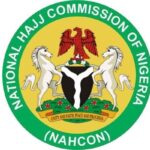There are 469 members in both chambers and this means that more than two-thirds of them are not coming back when the 8th assembly opens in June.
Figures released by Independent National Electoral Commission (INEC)) weekend showed that APC won 61 senate seats while PDP has 48.
In the House of Representatives total of 229 members are not returning, according to INEC list.
The list showed that only 122 lawmakers succeeded in their bid to retain their seats.
The APC, hitherto the main opposition, has now attained simple majority in the senate, although the number fell short of the two-thirds required to pass major legislations.
The APC will need additional 12 PDP senators to pass legislations in the Senate.
PDP senators may be able to negotiate for some Grade ‘A’ committees in return for their loyalty and support our correspondent reports.
At the beginning of the 7th assembly, the PDP had 75 senators which gave the party absolute majority.
The new Senate
Further analysis of the election results indicates that only 30 out of the 109 serving senators have won their re-election bid.
Fifty of the senators had lost their return tickets during the primaries in December, while 29 others lost out in the secondary elections on March 28.
A total number of 79 senators will not be in the next assembly which is about one of the highest attrition rates recorded in the senate since 1999.
Daily Trust had exclusively reported last year that 75 senators might not return in the next assembly based on the analysis of the situation then.
The trend from 1999 to date shows that in each election, at least 75 senators lost their bids to return. However, only the senate president David Mark will return to the National Assembly in June as the lone member of the 1999 class.
In 2003, only 31 senators got re-elected.
In 2007, the attrition rate got worse as only 23 senators were returned, which represents less than 20 percent of the Senate.
However, in 2011, the number of returnees increased by 10, as 33 Senators got re-elected.
A breakdown of the list for the House of Representatives showed that Lagos has the highest number of new comers with 19 out of 24, followed by Oyo with 10.
On the other hand, Kano State has the highest number of returning lawmakers with 16 out of 24. None of the lawmakers from Adamawa, Ekiti and Kebbi States has returned.
Daily Trust reports that two of the non-returning lawmakers – Speaker Aminu Waziri Tambuwal and Ifeanyi Ugwuanyi both won governorship elections in Sokoto and Enugu States.
The new House
The APC has secured a total of 209 seats in the House, while the PDP has 133. This figure gives the APC absolute majority.
About 160 of the lawmakers had lost out since the primaries of their respective political parties.
Daily Trust reports that this is the first time PDP will find itself in the opposition in both the Senate and the House since the return to democratic rule in 1999.
The list showed that All Progressives Grand Alliance (APGA) secured five seats, while Labour Party, ACCORD and Social Democratic Party (SDP) go one member each.
Labour Party got a lawmaker in Oyo State, ACCORD in Lagos State, SDP in Adamawa, while APGA got its lawmakers two from Anambra, one each from Taraba, Abia and Ebonyi states.
High turnover of MPs big loss to Nigeria’s democracy – Reps
Following the high turnover rate of members of parliament in the coming 8th National Assembly, some lawmakers have described the situation as a big loss to Nigeria’s democracy.
The lawmakers’ reaction was coming on the heels of the list of winners of the 360 federal constituencies as released by the Independent National Electoral Commission (INEC), which showed that 229 members of the House lost out in their bids to retain their positions. Reacting to the development, House spokesman Zakari Mohammed said with the high figure of non-returning members, the work of the legislature will be affected negatively as new comers will have to start learning afresh.
For his part, Rep Ali Ahmad, who is one of those not returning to the House, said even though they had noted the high turnover rate long ago, there was nothing they could do about it, describing the development as a problem and “a big loss to Nigeria’s democracy.”
Ahmad said: “We’re losing a lot of experienced lawmakers. You’ll find out that the new comers lack the experience of lawmaking and that will affect the legislative business.”
 Join Daily Trust WhatsApp Community For Quick Access To News and Happenings Around You.
Join Daily Trust WhatsApp Community For Quick Access To News and Happenings Around You.


